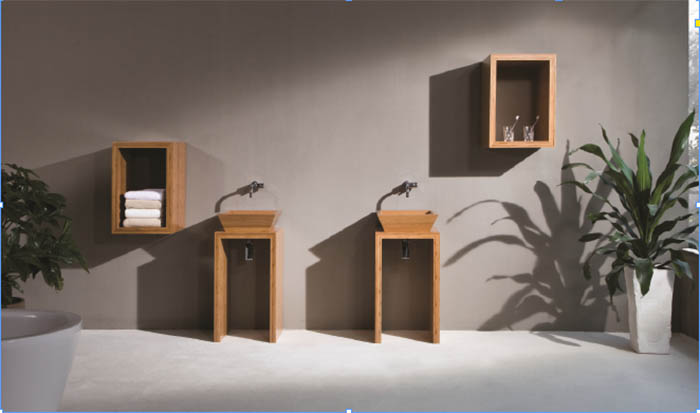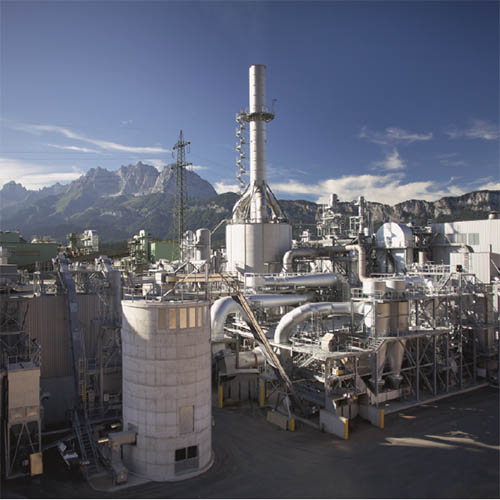Grant Hughes, the graduate designer from Herbert William kitchens, tells us how he believes we can all make our businesses more environmentally-friendly
All through my education, thinking ‘green’ was a theme, generally because at the time experts believed there was only 25 years of oil left (until they found some more).
However, now we are seeing the damaging effects our lifestyle and the human industrial machine is having on our poor blue planet. We are seeing our weather changing due to the extra carbon we are releasing into the atmosphere.
I see industries all over the place streamlining the way they work to start minimising this issue, including the suppliers we buy from. But is ‘eco-friendly’ a selling point in a kitchen? Is it worth taking a critical look at our industry to see if there is any improvement we can make to our footprint? Also, is designing and installing kitchens a large enough industry to even be worried about it?

Starting with what’s been done and what’s been happening, all factories now are required to meet a certain requirement when it comes to waste, energy usage and emissions. Logistics companies are also required to keep an eye on this, and clever add-ons have been incorporated into lorries to help.
In terms of cabinetry, we could be a lot worse. I discovered that Egger has a good environmental policy. Going into this, I thought that MDF units would be a bad way to go because of the glue content. The glue they use is urea-formaldehyde resin, which I have found in my research to be quite environmentally damaging. But when you look at Egger’s environmental product declaration, they clean the exhaust air and the water to well above the standard required.
To me this is a ‘good enough’ way to keep using this resin and I have no real issues with it. There are greener alternatives, but you can’t have the finishes that Egger has. Other cabinet factories have similar guidelines they must meet.
Worktops could possibly be better, getting granite over here from Italy must create a fair amount of emissions, but it is ultimately a natural product. That, combined with the amount we use, means we will likely never run out of granite. Quartz is made with a small amount of resin and again you could argue that the resin content is not super-eco-friendly to the environment, but there is always the counter-argument that the companies involved are adhering to agreed standards. I haven’t found much information on recycling quartz or granite that has come out of a kitchen, unless they are being reworked second-hand. I feel sure it would not be hard to grind down old quartz and reconstitute it into new slabs.
Appliance companies do use energy usage and efficiency as a selling point. Things like Zeolith in dishwashers and Miele’s iDos are all great, simple ways to improve the efficiency and eco-friendliness of households. These are just a couple of examples and we should definitely be touching on these points when we talk to our clients.
How much do you know about your suppliers’ environmental policies? Pressure from us will also make the ones lagging behind catch up
So, what more could the bigger players do?
Let’s look at recycling first. Would it be impractical for MDF manufacturers to take back old boards, break them down and turn them into a cost-effective recycled board? If this isn’t the case, should we be sending our waste to companies that will burn the waste to create green energy?
For their part, I feel that cabinet manufacturers, appliance factories and worktop fabricators carefully work out their cutting schedule to stop excessive waste product. After all, the less you throw away, the more of it you can sell.

There are already products that are beating us to the chase on this. I came across a product from Canada called wheat board. Now I was a little young when this product was trying to break into the British market so don’t remember it first-hand. I understand there was a bit of a fiasco and either the product wasn’t gratefully received, or the supply chain couldn’t get set up properly. Basically, they take the excess wheat chaff, which is a waste product of the wheat harvest, break it down and turn it into a product like MDF. The only difference being that it is slightly heavier and denser. Also, if you want to keep it as a fully green product, you must use eco-friendly glues. Which means that the final product would be paintable, but you would not be able to ‘print’ an effect without using the wrong type of glue. If this or a similar product came to market, it would be a budget-friendly green alternative for cabinet carcasses. You could possibly even make the doors out of the product and use a water-based paint to finish the job.
I have also come across a company online that makes kitchens entirely out of bamboo. Bamboo is really fast-growing and super-strong and you can use all of it. Thanks to its speed of growth, you can grow it like a crop. Classic Kitchens Direct is the head-of-the-curve company and I would recommend checking them out if you’re interested.

There are also similar companies that are making their cabinets out of responsibly-sourced, fast-growing wood (I found one with birch cabinets), that are supplementing their range of hardwood doors. These cabinets are then painted with a water-based paint. One company I found, Sustainable Kitchens in Bristol, has its electricity provided by Ecotricity – a Gloucestershire-based company that produces its electricity from wind turbines.
I should also mention super-products like Neolith. This premium product is made from 100% natural materials and has no harmful products within it.
It’s important to note that some of these suggestions would mean a major change in a lot of businesses and it wouldn’t be feasible for all these things to be adopted overnight. But I would press all of you, if it is an easy change to make and it’s not going to make a huge difference to your bottom line, then why wouldn’t you do it?
I am not a green warrior and I wouldn’t expect you all to make every change I have suggested here. But if we all do a little, over time we will be helping our race reach its next evolutionary stage – to live entirely in balance with our environment.
‘What can I do – realistically?’
Be energy-efficient
Make sure your heating system can cope with the space you have. Have it set on a timer so that it can heat the building slowly before you get in to work in the morning. Doing it slowly means the heaters don’t have to expend so much energy getting the rooms up to temperature. If your front window will be on display, put that display on a separate circuit, so you can turn the rest off. And if you haven’t got LED lights in your showroom yet, I suggest you catch up.
Avoid unnecessary journeys
If you can sort it over the phone, do it. Unless, of course, you have an electric car. We often go out to clients to talk face to face about a minor issue or take a small item out to them because we feel we should. Sometimes there is no avoiding this, but why not wait until someone is passing the location, or until you can accomplish a few tasks at once. Supplier deliveries direct-to-site from are also a good way to go.
Pick your suppliers
with care
How much do you know about your suppliers’ environmental policies? Knowledge is power and there is no reason in these times a company needs to be wasteful. Pressure from us will also make the ones lagging behind catch up.
Switch to a green energy supplier
The more of us that use companies like Ecotricity, the more money they have to invest in green energy. It’s no skin off our nose, as we have to pay energy bills anyway. It also makes the use of electric vehicles much more of a plausible way to reduce electricity usage. After all, why have an electric car if its electricity comes from a coal-fired power station? The more of us that do this will encourage our other existing suppliers to also invest in green energy.
Go one step further
Why not get solar panels and heat recovery systems built into your showroom? Check your insulation as well and you may well find that money invested there will pay off in electricity savings. If you have a fleet of vehicles, can they too be electric? These things can also be a selling point of your business. The fact that your business is environmentally-conscious is another way to demonstrate that you are a responsible business and take things seriously.